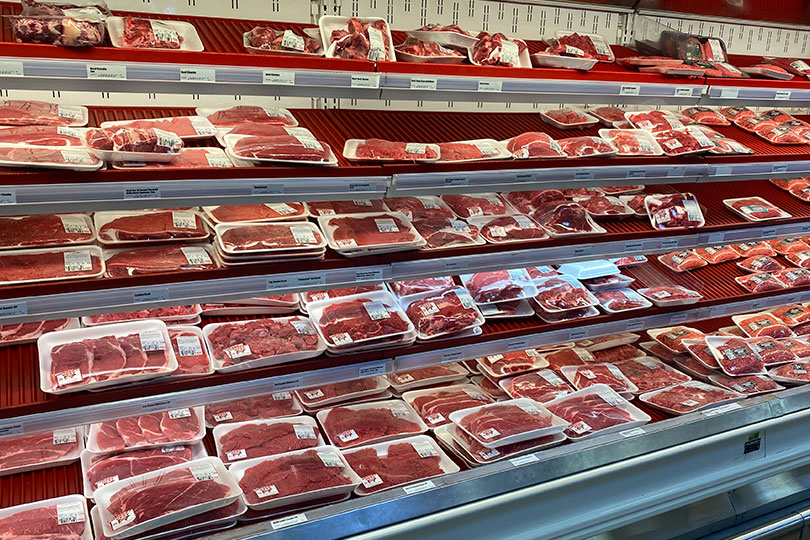Farm Bureau is backing two recently introduced bills that would help more small meat and poultry plants sell their products in other states and better meet nationwide demand for beef, chicken and turkey.
The Requiring Assistance to Meat Processors for Upgrading Plants (RAMP UP) Act would establish a program to make facility upgrade and planning grants to existing meat and poultry processors to help them move to federal inspection, which will allow them to sell their products across state lines. The legislation would also require the U.S .Department of Agriculture (USDA) to work with states and report on ways to improve the existing Cooperative Interstate Shipment program.
The RAMP UP Act was introduced by Chairman Collin Peterson of Minnesota and U.S. Reps. Frank Lucas of Oklahoma and Jeff Fortenberry of Nebraska.
This bill will help farmers, consumers and processors, Texas Farm Bureau (TFB) National Legislative Director Laramie Adams said.
“COVID-19 highlighted issues within our supply chain. Consumers were looking for beef and poultry products, but the slowdowns at major processing facilities reduced processing capacity,” Adams said. “This bill will help more processing facilities obtain federal inspection status, which would ensure that farmers and ranchers have a market for their poultry and livestock. The additional capacity and regulatory flexibility for smaller processors would help meet consumer demand.”
Also in the House, the Direct Interstate Retail Exemption for Certain Transactions (DIRECT) Act (HR 7425) would allow state inspected meat to be sold across state lines, but only through e-commerce. The bill would allow small producers and processors an additional option to directly market to consumers.
The bill would amend the retail exemption under the Federal Meat Inspection Act and Poultry Products Inspection Act to allow processors, butchers or other retailers to sell normal retail quantities (300 lbs. of beef, 100 lbs. of pork, 27.5 lbs. of lamb) of state inspected meat online to consumers across state lines.
The legislation would also maintain traceability of sales easily accessed in the event of a recall; allow retail sales to consumers, minimizing the risk for further processing in export and keeping equivalency agreements with trading partners intact; and allow states operating under the Cooperative Interstate Shipping system to ship and label as they are currently.
The DIRECT Act, which was sponsored by U.S. Reps. Henry Cuellar of Texas and Dusty Johnson of South Dakota, would create opportunities for strengthening the farmer-consumer connection and increase meat processing capacity nationwide, Adams said.
“When larger processing facilities were temporarily shutdown or slowed production, the small, state processors helped filled the void for many ranchers,” Adams said. “The DIRECT Act would allow state inspected plants to sell their product direct to consumers across state lines through e-commerce, helping meet the consumer demand for protein.”
In the Lone Star State, cattle and calves are the top agricultural commodity, and Texas is also the state with the most cattle.
Texas Farm Bureau appreciates the bipartisan coalition of lawmakers who introduced the bills, including Rep. Henry Cuellar of Texas, for their support of American farmers and ranchers,” Adams said. “Both the RAMP UP and DIRECT Acts would expand options for ranchers, consumers and processors without compromising food safety standards.”

